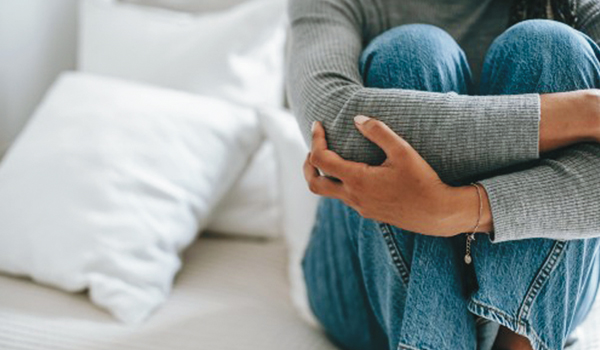Abusers using cost of living crisis as ‘a tool for coercive control’, says Women’s Aid
Abusers are using the cost of living crisis and concerns over financial hardship as a tool for coercive control, according to new research.
Women’s Aid says this lack of financial stability has prevented almost three-quarters of domestic abuse survivors from leaving their abuser.
Farah Nazeer, chief executive of Women’s Aid said the current cost of living crisis has been “devastating” for survivors of domestic abuse.
A survey conducted in June by Women’s Aid found that the cost of living crisis was creating extra barriers to women fleeing abuse – 73 per cent of women living with and having financial links to their abuser say that the cost of living crisis has either prevented them from leaving or made it harder for them to leave.
Reasons women were unable to flee included being unable to afford ongoing living costs on a single income (69 per cent), the immediate costs of leaving (67 per cent), getting into debt (52 per cent), not being able to support their children, (50 per cent) or fear that benefits would not cover increased living costs (48 per cent).
Ms Nazeer said: “Women’s Aid surveyed women who have experienced domestic abuse in the past year and the majority (96 per cent) said the crisis had a negative impact on their financial situation.
“We know that domestic abuse and economic abuse go hand in hand with abusers often controlling every aspect of a woman’s life. The soaring energy and food costs, coupled with stagnant wages, will leave many women more vulnerable to abuse.
“Women have told us that they are being trapped because of their dire financial situation, two thirds (66 per cent) of survivors told us that abusers are now using the cost of living increase and concerns about financial hardship as a tool for coercive control. Women who live with their abuser are often financially dependent on them.”
Women’s Aid said economic abuse creates an “uneven financial playing field” and adds to the pressures that survivors face.
It added: “Women living with their abuser are often financially dependent on them too. In our survey, 27 per cent of women in this group told us they had limited or no access to money, due to limits imposed by the abuser.
“Economic abuse, along with increased financial hardship as a result of the cost of living crisis, means it is even harder for women to leave, recover and rebuild their lives after abuse.”
Dr Nicola Sharp-Jeffs OBE, founder and chief executive officer of Surviving Economic Abuse (SEA), said: “It is impossible to separate physical safety from economic safety. A lack of financial stability prevents women from leaving an abuser, it prevents women who do manage to leave from rebuilding their lives safely and it is why many feel they have no choice but to return. The cost of living crisis will only force more victims into these dangerous situations.
“We saw how the coronavirus pandemic provided another tool for abuse. Abusers used the situation to their advantage, establishing or increasing control over their partner’s finances and taking advantage of the financial instability caused by the worsening economic climate.
“This research shows the same is happening again. With the effects of the pandemic still ongoing, and the cost of living crisis yet to hit its peak, the compounded impact will be catastrophic for victim-survivors of economic abuse.”
Two-thirds of survivors who responded to the survey said abusers were now using the cost of living increase and concerns about financial hardship as “a tool for coercive control”. More than a fifth (21 per cent) said their abuser used the crisis to justify controlling their access to money, including reducing the money they were given for essential items. Women also talked about ex-partners using the crisis to justify reducing child maintenance payments.
The survey found the crisis has further isolated survivors, with more than two-thirds (67 per cent) of survivors forced to spend more time at home because they were not able to afford outside activities.
“This crisis is having an unprecedented impact on women and children and requires urgent action,” said Ms Nazeer. While the Government has made some positive progress in this area, more must be done.
“We urge the Government to provide an emergency support fund for survivors to offset the impact of the cost of living crisis.
“Survivors have suffered enough, having been trapped in their homes during Covid: they must be offered the help they need to support their children and to be free from abuse.”


